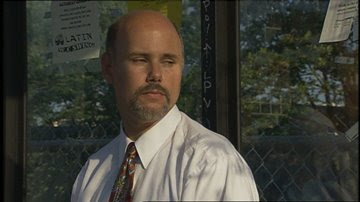 Recently, I've been a little obsessed about Iron Man.
Recently, I've been a little obsessed about Iron Man.
The trailer for the Iron Man movie got me really stoked to see it... and it took some weeks to figure out why. Finally, I got it: Iron Man is the perfect superhero.
Iron Man's alter ego, Tony Stark, is an hideously wealthy and unscrupulous weapons dealer... and he's an alcoholic. Hardly superhero material, wouldn't you agree? That is, until he's kidnapped and has a life-changing epiphany to right the wrongs he's spent a lifetime building a career on.
Superheroes are appealing to modern audiences because superheroes emulate god-like powers, but also because they typify the epic struggle of one vs. many. As mere individuals in an increasingly globalized society, we all yearn to be the one person fighting against overwhelming odds to make a substantial difference in the world. We all want to be a superhero, and that doesn't always mean wearing a cape—perhaps it means being a gifted young wizard, or jedi, or an average guy who can bend the Matrix... or maybe it can mean being an exceptionally observant detective, or even a teenager with a funny name and a yapping dog.
Superman has dominated American pop culture, and it's easy to see why. He's got all the tricks in his bag, right? He can fly, he's got X-ray vision, freezing breath, he's incredibly strong... who can deny him the best table in the house?
The problem with Superman is that he's royalty—he was born with all his powers. Sure, maybe not on his home planet, but he's thrust onto our planet (bearing a striking resemblance to humans!) where he's suddenly this mega-being. If we're talking about swallowing a Convenient Plot Development pill, that's about the biggest one there is. And also, almost nothing ever kills this guy! It's a little ridiculous.
And then there's Batman, exactly the opposite from Superman in that he's a self-made hero. Which is like saying that with enough money and muscle tone, anyone could be Batman. Obviously, that's far more democratic than Superman's coronated noble blood, but Batman also has some noteworthy flaws...
First, Batman is too provincial. His stomping ground is Metropolis Gotham City. What about all the other thousands of cities without their own mega-rich and mega-powerful concerned citizens? Sucks to be them! Second, Batman is too vulnerable—one well-timed bomb and Pfttt!—game over. Thirdly, like Superman, you can tell Batman is a cracker. Meaning, with some good guesswork, you could figure out his secret identity, especially in this world of DNA testing. Finally, Batman's drive to fight crime is motivated by a vendetta, which can end rather abruptly once he vanquishes his parents' killer.
Iron Man, though, carries many Superman attributes: he's strong, he can fly, he's impervious, has a global reach. Unlike Superman, his identity is 100% protected (i.e., no part of his face is shown)... and he's a guy just like any of us. A guy with flaws. Sure, he has some innate talents, like intelligence and insight, so he's not totally equal to everyone else, but that's as close as you're likely to get for a superhero. Furthermore, he has derived enormous wealth from his talents, and because his wealth was generated by designing weaponry, that initiated a sequence of events leading to his own epiphany...
This last bit is particularly interesting. Most superheroes are victims of unfortunate circumstance, like Spiderman (bit by a radioactive spider), Batman (parents were murdered), Daredevil (doused by a truck's radioactive spill), The Fantastic Four (caught in a weird space radioactivity), The Incredible Hulk (an unintentional overdose of Gamma rays), etc. It's refreshing, then, to see Iron Man change that pattern: Stark is kidnapped and forced to make a weapon... which causes him to re-evaluate his life. So his epiphany is the result of his kidnapping, and the kidnapping is the result of his talents as an arms-builder. Thus, his own talents and life's earlier achievements set in motion a series of events leading to his revelations later in life. Stark then chooses to become Iron Man not because he was coincidentally in the wrong place at the wrong time, but because his talents led to his own incarceration. If character is plot, or who you are determines what happens to you, then Stark was always destined to become Iron Man. It was only a matter of time.
So now we see Stark as a man forever guilt-stricken, eternally repentant. Unlike Batman, he will never succeed in definitively righting the wrongs he's made and his quest to fight evil-doers will have no end in sight. On top of all that, he must struggle with his own alcoholic demons. Bruce Wayne, this guy is not—and we relate to him for it.
A final note... the difference between a fantasy genre and sci-fi genre involves the "Black Box": in a fantasy genre, the Black Box does something amazing—e.g., levitation, teleportation, telepathy, whatever—and nobody can open it up to see how or why it does what it does; its abilities are called "magic" and that's that. Yet in a sci-fi genre, you can open up the Black Box at any moment and list the scientific reasons why it does what it does. For this reason, the X-Men are closer cousins to the fantasy genre than sci-fi, as is Superman (hell, Superman is closer to supernatural!), while Iron Man and Batman are closer to the sci-fi genre.
And Iron Man could kick Batman's ass any day of the week, yo!














